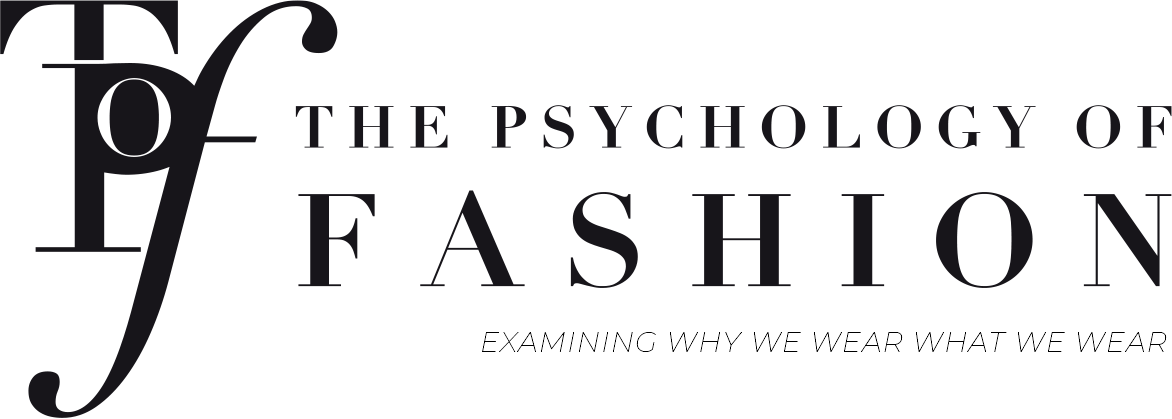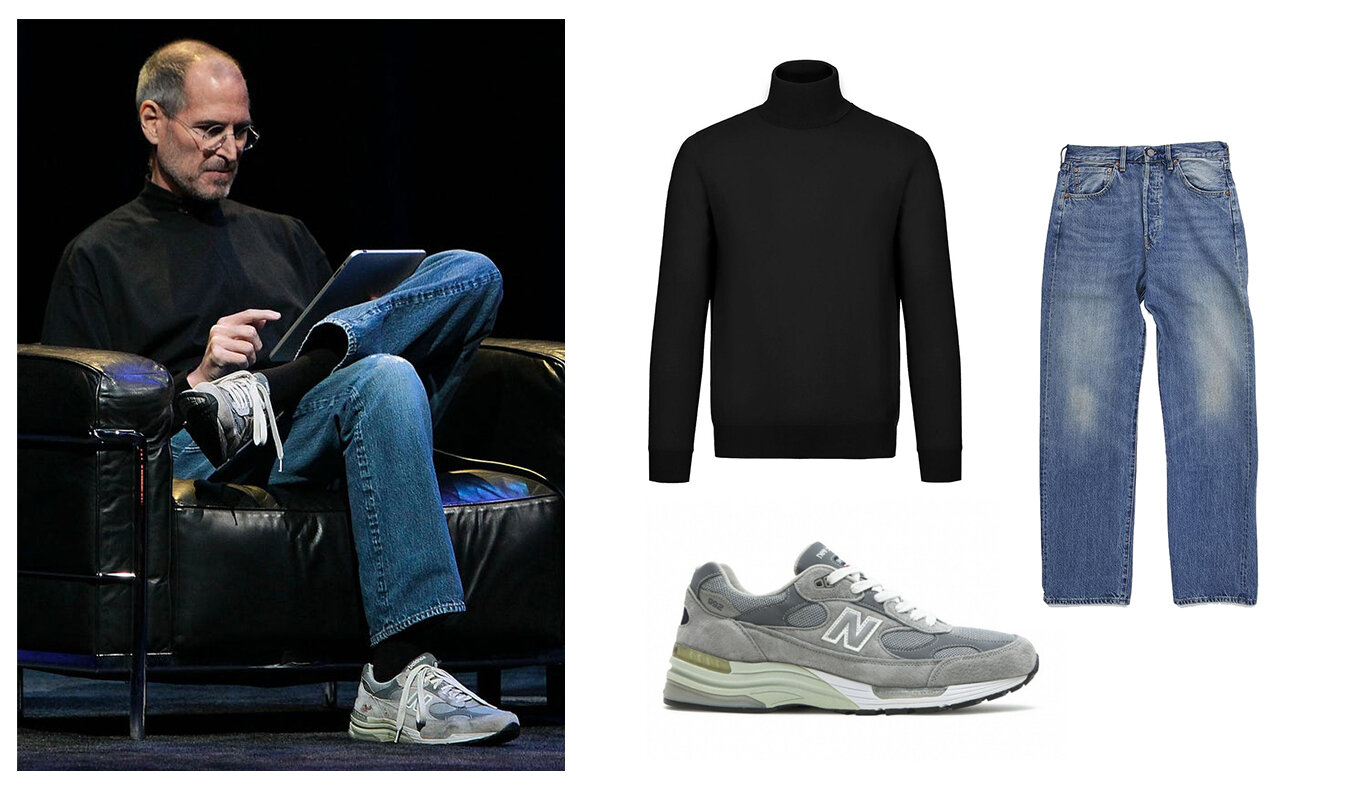When fashion psychology is discussed, the assumption is that the framework only applies to followers of fashion. The go-to counter-argument is, “but what about Steve Jobs?” Famously acknowledging that it’s '“one less decision he has to make every day”, the late industrial designer and Apple executive was known for wearing the same thing all the time, for decades. He was faithful to black turtlenecks, Levi’s 501®s classic fit jeans, and sneakers, usually New Balance.
While some might think his sartorial consistency flies in the face of fashion psychology theory (that there are deeper reasons as to why what we wear), he is in fact the perfect ambassador for it. Jobs’s choices weren’t purely functional. The fact that he chose this particular uniform to wear every day meant that there was something in such strong alignment between it and his personality, that he needn’t ever experiment.
Christopher Wylie, the whistleblower, data revolutionary, and author of Mindf*ck: Cambridge Analytica and the Plot to Break America, has echoed our sentiments: “Even though people might want to wear something different, or look different, or have very different concepts in their life, there’s something universally human about putting on clothes in the morning. Even men who say “I don’t care about fashion” actually do. They care deeply, because if you tell that guy “here, wear this belly-dancing outfit,” he won’t do it. The “Average Joe” who doesn’t care about clothes cares deeply about what he’s wearing.”
So without further ado, let’s process Jobs’s look through the Big 5 model of personality traits, otherwise known as the OCEAN framework, speculating as to his scores.
The Big Five are more often used in scientific circles for personality research. Source: buffer.com
OPENNESS - High
Imagination, intellect, and artistic interests are key subsets of the trait of Openness, which (hardly needs to be said), Jobs had in spades. Ironically, people who are artistic, philosophical and intellectual tend to dress very plainly and minimalist, as Jobs did. There is so much going on in their minds, that they need their outfit to be a bit of a blank canvas.
CONSCIENTOUSNESS - Moderate-High
While someone who achieved what Jobs did would have to be Conscientious, a trait associated with worldly success, Jobs wasn’t pedantic, so only gets a Moderate-High score. For example, he was into substance more than formalities, preferring people to talk freely over calculated presentations. In his words, “people who know what they're talking about don't need PowerPoint”. The Moderate-High score is evident in his famous outfit: generally neat, but not quite immaculate either. The jeans were sometimes a bit creasy.
EXTROVERSION - Low-Moderate
While Jobs could dazzle us on stage when unveiling a new Apple product or campaign, he leans toward introversion. He never liked having a lot of people around: when then-President Barack Obama asked him to join a “small” gathering of tech moguls, Jobs declined — the president invited too many people for his taste.
Wozniak and Jobs started Apple Computer Inc. in the garage of Jobs's parents in 1976. According to Wozniak, Jobs put the name forward after visiting an apple orchard that Wozniak said was actually a commune. (Photo: Paul Sakuma/AP/File)
AGREEABLENESS - Low
This trait relates to how much one values agreeing with others, and has subsets that include altruism, cooperation, trust, sympathy, and morality. From screwing over friend Steve Wozniak and firing people with no notice, to that whole thing with his daughter, these qualities are not things that Jobs was known for, rendering him low on Agreeableness. (Most people who “think different” are.) We see this sartorially simply in the fact that he refused to deviate from the one outfit. In having a signature, he set himself apart, canonizing himself into eternity.
NEUROTICISM - Moderate
Which brings us to neuroticism, one tricky beast of a trait. The dark quality is responsible for bad moods, anxiety and a host of interpersonal problems, but is also correlated with creativity — recalling the tortured genius stereotype. The key is to have a moderate pinch of it: neurotic enough to be imaginative, and yet stable enough to actually get stuff done. Our research has revealed that people who score moderate or higher on Neuroticism prefer wearing black, in line with Jobs’s choice of a black turtleneck. Color psychologists claim that black has an emotionally protective quality and works to keep others at a distance, which is why sensitive people choose it as their daily armor.
Neurotics are also afflicted by a tendency to ruminate, otherwise known as ‘overthinking it’. And in a Wired interview from 1996 Jobs shows his neurotic hand: "Creativity is just connecting things…When you ask creative people how they did something, they feel a little guilty because they didn’t really do it, they just saw something. It seemed obvious to them after a while. That’s because they were able to connect experiences they’ve had and synthesize new things. And the reason they were able to do that was that they’ve had more experiences or they have thought more about their experiences than other people. Unfortunately, that’s too rare a commodity."
To find out your own Big 5 scores, take the test below.













In the world of post-pandemic dressing, one word has taken social media by storm: cheugy (pronounced: chew-gee). In the worlds of fashion and lifestyle, cheugy describes a look, a thing or a person that’s considered out of date.